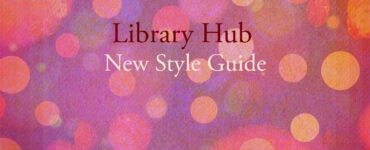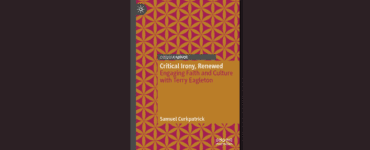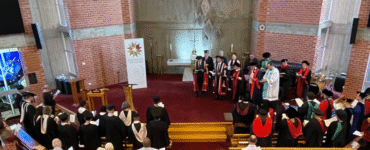Call for submissions
The call for this collection arises from the idea that essays, sermons, prayers, liturgies, short reflections, poetry, drawings, artwork, photography all form a valid expression of our theological and spiritual journeys. What are Australian women wrestling with? What are our protests, our pain, our longings and our hopes? What would they like to breathe life into?
The Maori word for love is aroha (aro – ‘to pay attention to’ and ha – ‘the breath’). To love is to pay attention to the breath. In 2 Timothy 3:16 (NIV), Paul states, “All Scripture is God-breathed…” In Genesis, God breathed “the breath of life” into Adam (Genesis 2:7). Jesus “breathed on them and said to them, ‘Receive the Holy Spirit'” to His disciples (John 20:22).
This is a watershed moment in time where George Floyd and David Dungay cry out: “I can’t breathe”. Pollution, deforestation and resource extraction in the name of development and ‘economic recovery’ impact our air quality. The virus is attacking the bodies of many, rendering them breathless. The COVID restrictions on our distancing and socialising, are in place so we do not breathe on one another. And yet, within this pause on the “normal,” Papatūānuku (our Earth Mother) is breathing. This feels like a moment critical to pay attention to ‘the breath’ of the earth and the breath of humanity. It is also important to remember that we do not breathe with our lungs alone, that the work of breathing is done by the whole body. (Alexander Lowen, The Voice of the Body, 2005). The same moments that take your breath away could also breathe purpose and love back into your life, (Steve Maraboli, Unapologetically You: Reflections on Life and the Human Experience (2013). To defend and care for those and that which is most vulnerable, this is to show love, – this is to pay attention to the breath of the Creator and all creation. What catches your breath right now? What takes your breath away? What is asking for your attention right now?
This issue of ‘in God’s Image’ (iGi) is intended to be a resource for worship, contemplation, prayer, and faithful prophetic criticism. Our approach comes from the conviction that while many people write or produce creative content, even the best of these often have no outlet – or way of connecting with other people. This collection hopes to gather voices from in and around the margins of our organised faith gatherings, and institutions and is particularly interested in hearing from quiet thinkers, writers, creators whose work has not previously found a wider audience.
We are looking for womanist/feminist theological content with something to say – content that opens us up, gives breath and invigorates us, rather than closing us down. Creative work at its best can be challenging, disturbing, exhausting but also uplifting, transforming, lifegiving, liberating and much more. If you create content like this, we want to hear from you!
Selection Criteria
The best pieces for this collection are ones written by people who have been touched, moved, and opened up by something deeper and are now able to express this on paper. We want to receive works on issues confronting our communities and reflections on these from an Australian woman’s point of view. Work that is honest about failings and fragility, soaked in humanity and hope, and inclusive of protest against the misuse of power.
We will be looking for synergy between creative works to direct the final themes and arrangement. We will select pieces for the collection, so they fit the broad (and generous) ethos of the issue, and if they are of a quality and theological and spiritual depth that moves us.
Guidelines
All contributions must be original and have not been published elsewhere in print and/or electronic media. Those that have been published elsewhere will not be accepted.
Australia is the host country for this particular issue. If you do not live in Australia please do not submit to us but rather follow iGi’s website for other opportunities to contribute to other editions seeking content for your region.
Include a 50-word bio with your submission.
Articles should be between 1000 to 3000 words. Use the Chicago Manual of Style when citing references in the footnote/endnote.
Poems have no restriction in form but should be no longer than 40 lines. You may send up to 6 poems – simply because we know how difficult it can be to choose and this will give us a sense of your voice.
Pictures if you are sending photos, paintings, drawings, sketches, etc. You may send up to 6 images – simply because we know how difficult it can be to choose and this will give us a sense of your work. For each, include a short description of its meaning/inspiration that speaks to your thinking. You must explicitly provide permission to use it.
See the full guidelines for contributors to iGi for further information.
About iGi
The iGi, or ‘in God’s image‘ is the oldest existing feminist theological journal in Asia, with two issues produced every year (https://awrc4ct.org/publications/in-gods-image/). It is aimed at fostering and promoting Asian feminist theologies, and encouraging Asian women to articulate, reflect and share their stories and faith in a variety of creative ways. Since 1982, iGi has provided a platform for Asian women, (including Australia, New Zealand and the Pacific Islands), to share feminist/womanist theological thinking and reflections with an international audience. It has been a medium of communication and conversation between women in this region and between Asian women and women in the rest of the world. iGi serves as a resource for all women who think theologically and for students of theology on themes that reflect feminist struggles and theologizing.
We are not able to pay contributors directly for their work, but as a gesture of appreciation and thanks you will receive two copies of iGi when your submission is published mid-2021.
Dates
It would be great if you could send your contributions to acftsubmissions@gmail.com on or before 30th October 2020.
We look forward to hearing from you soon. Please do not hesitate to write to us using the email above if you have any questions or queries about your submission or the submission process.
 Monica Jyotsna Melanchthon, Guest Editor
Monica Jyotsna Melanchthon, Guest Editor
Monica has strong commitments to the marginalized, particularly, women and Dalits. She has contributed toward developing Dalit and Indian Feminist hermeneutics and theologies, and interpretation of Biblical texts drawing on insights from the social biographies of these communities, their perspectives and their lived experiences. Her approach is therefore contextual, inter disciplinary and liberational. Her research interests include cultural and literary studies, reception histories, epistemologies, ecological readings, feminist hermeneutics and interpretations.
 Talitha Fraser, Associate Editor
Talitha Fraser, Associate Editor
Talitha is a NZ European/Ngai Tahu urban contemplative living in Melbourne, Australia. With a calling toward encountering God and creating spaces where others may also. Her interests include theopoetics, radical discipleship, womanist theologies, community, inclusion, gender and racial justice, voice and other sacred/ordinary things.

A leading voice for feminist theological scholarship and a hospitable hub for engagement with feminist approaches within Australia and the region.
The Australian Collaborators in Feminist Theologies network aims to consolidate and energise the University’s commitment to the participation of women and feminist scholars in the academy and the wider church. By fostering and forwarding feminist voice and vision we aim to promote Gospel justice by addressing issues relating to gender equality, class, race, sexuality, and ability.


 Monica Jyotsna Melanchthon, Guest Editor
Monica Jyotsna Melanchthon, Guest Editor Talitha Fraser, Associate Editor
Talitha Fraser, Associate Editor



I’m curious about the use of Maori concepts to frame a conversation that only Australian researchers can participate in. What does this do for the breath of indigenous Aboriginal voice? Can you draw on Maori themes and deny Maori women from Aotearoa the opportunity to contribute? Steve Taylor.
Thanks for getting in touch Steve, the call is open to all women living in Australia whatever their cultural heritage.